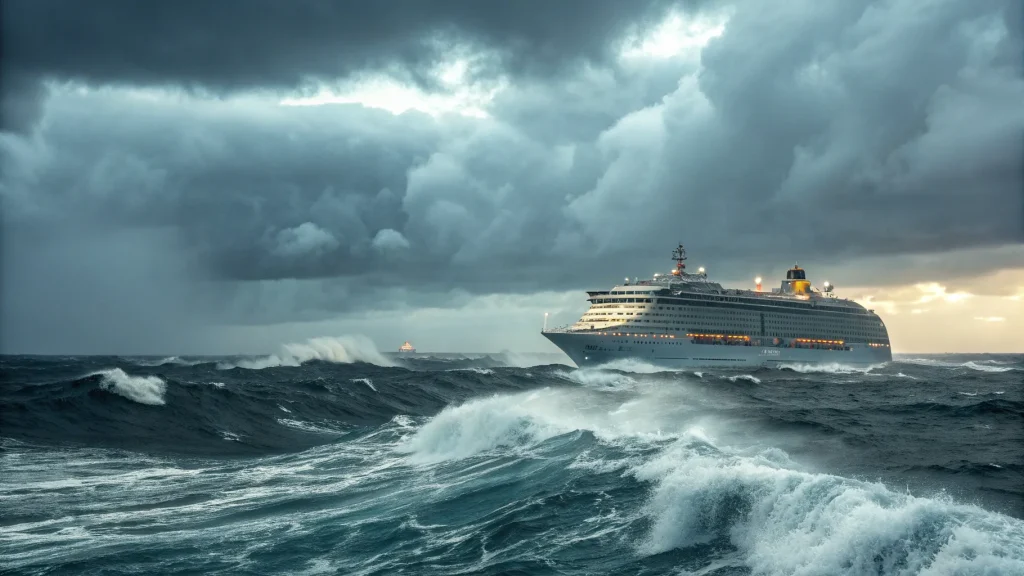Cruise vacations during hurricane season present unique challenges for both passengers and cruise lines. The Atlantic hurricane season, which runs from June through November, can disrupt itineraries and cause concern for travelers planning Caribbean or Atlantic voyages.
While cruise ships are built to handle rough seas and have sophisticated weather tracking systems, they prioritize passenger safety by avoiding storms rather than sailing through them. This approach often leads to last-minute changes that passengers need to be prepared for.
Table of Contents
ToggleHow Cruise Ships Handle Storms
When a hurricane threatens, cruise lines take decisive action. Ships are rerouted away from storm paths, often changing ports of call or even entire itineraries. Modern cruise vessels are equipped with advanced stabilizers and navigation systems that allow them to outmaneuver storms by sailing to calmer waters.
“The captain’s priority is always passenger safety,” explains a veteran cruise director with experience navigating hurricane season. “Ships can move faster than storms, giving us the advantage of being able to change course when needed.”
Cruise companies maintain 24-hour weather monitoring centers where meteorologists track developing systems and coordinate with ship captains to make informed decisions about route changes.
Passenger Preparation Tips
Travelers booking cruises during hurricane season should take specific steps to protect their vacation investment:
- Purchase comprehensive travel insurance that covers weather-related disruptions
- Arrive at the departure port at least one day early to avoid missing embarkation due to flight delays
- Pack essential medications and important items in carry-on luggage
- Keep contact information for the cruise line readily available
Experienced cruisers recommend maintaining flexibility with shore excursion bookings. Private tours booked independently may not offer refunds if the ship cannot dock at a scheduled port, while cruise line-sponsored excursions are typically refunded automatically when ports change.
The Upside of Hurricane Season Cruising
Despite the potential for disruptions, hurricane season cruising offers significant advantages. Prices can be 20-40% lower than peak season rates, ships are often less crowded, and many destinations experience fewer tourists.
Statistics show that only a small percentage of cruises experience major itinerary changes due to storms. Most ships successfully navigate around weather systems with minimal impact on the overall vacation experience.
“We’ve cruised during hurricane season five times and only experienced one significant itinerary change,” reports a frequent cruiser from Florida. “The cruise line substituted an equally beautiful port, and we actually preferred the revised itinerary.”
Communication During Weather Events
Cruise lines have improved their communication strategies during weather disruptions. Passengers now receive updates through multiple channels including cabin televisions, ship announcements, mobile apps, and letters delivered to staterooms.
When major storms develop, cruise companies also update their websites and social media channels with information about affected sailings, allowing passengers to stay informed before embarkation.
Some cruise lines offer compensation for significant itinerary changes, though policies vary widely. This may include onboard credit, partial refunds, or discounts on future cruises.
Hurricane season cruising requires mental preparation for possible changes. Travelers who approach their vacation with flexibility and understanding typically report higher satisfaction levels even when weather impacts their original plans.
As climate patterns evolve, cruise lines continue to refine their weather response protocols. Advanced forecasting technologies now allow for more accurate predictions, giving ships additional time to make thoughtful itinerary adjustments rather than last-minute changes.
For travelers willing to embrace some uncertainty in exchange for value and less crowded ships, hurricane season cruising remains an attractive option. The key to success lies in proper preparation, appropriate expectations, and the understanding that safety will always take precedence over scheduled ports of call.















